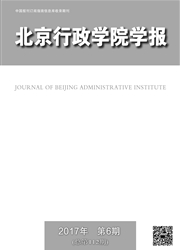

 中文摘要:
中文摘要:
大部制改革虽然取得了较大的成功,但“强强联合”的改革模式弱化了政府部门间的天然权力制约,必须继续推进决策与执行的适度分离,形成高效的决策、执行和监督并存的行政管理体制。单一制的国家结构形式和利益集团等因素所造成的“下动上不动,越动越被动”现象必须给予高度关注。政府职能仍然没有从根本上得到转变,需要经过长期的艰苦工作才能实现。法律滞后将抵消大部制改革的部分成果,对相关法律的清理和修订应该及时跟进,消除制约大部制改革的法律障碍,保障大部制的改革成果能够有法可依。
 英文摘要:
英文摘要:
Although the Super-Ministry System reform has achieved great success, the "strong-strong alliance" reform model weakened the natural power constraints among government departments. Therefore, the appropriate separation of decision-making should be continually promoted so as to form an administration system, where the efficient decision-making, implementation and monitoring can co-exist. The phenomenon that "the inferior changes while the superior doesn't change, therefore the more dynamic the inferior is, the more passive it is" caused by the unitary state structure, interest groups and so on should be paid more attention. Long-term hard work is required since the government functions still have not been changed fundamentally. In addition, the related laws and regulations should be cleaned up and amended timely in order to eliminate the legal obstacles of constraining the Super-Ministry System reform and to o ensure that there is a legal basis for the Super-Ministry System reform achievements; otherwise some of the Super-Ministry System reform achievements will be offset by lagging laws.
 同期刊论文项目
同期刊论文项目
 同项目期刊论文
同项目期刊论文
 期刊信息
期刊信息
